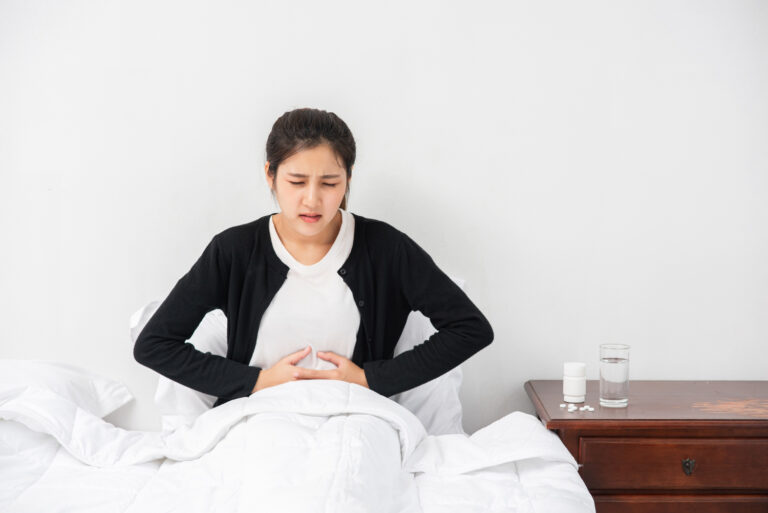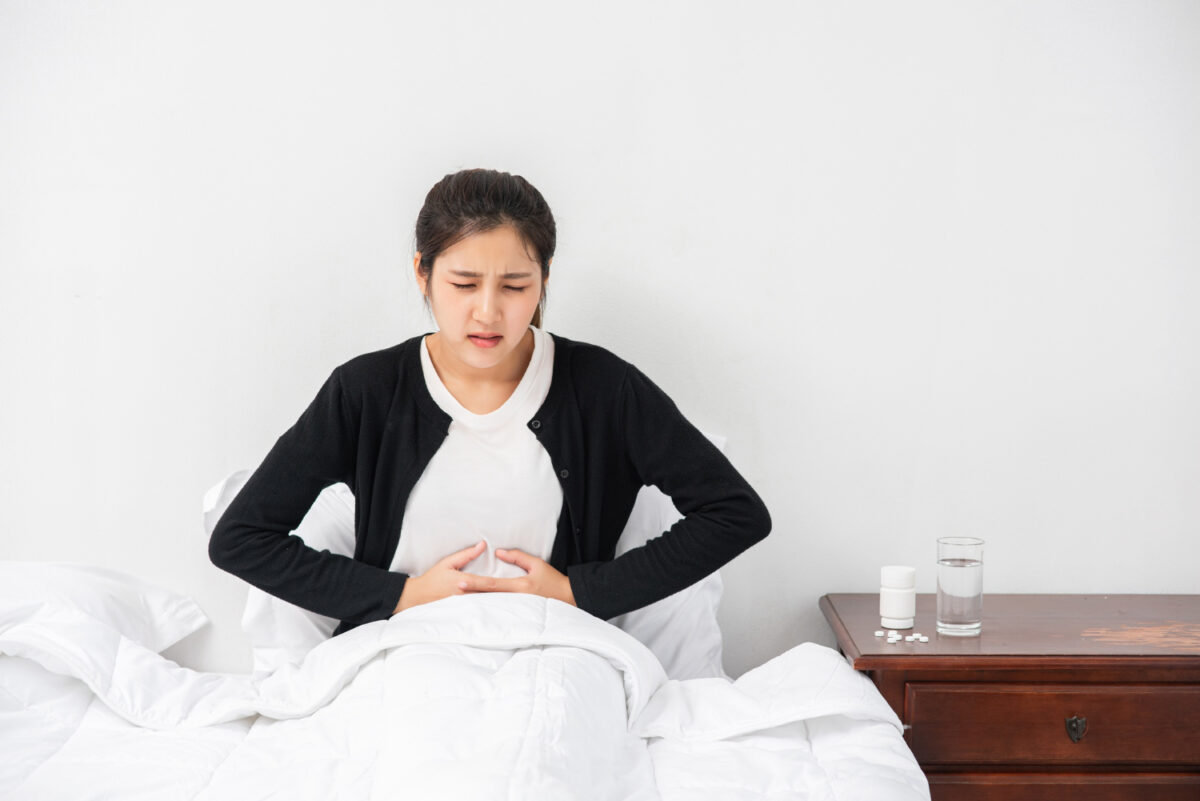/ บทความ / How to Manage PMS Symptoms?

Premenstrual syndrome (PMS) affects up to 75% of women at some point in their lives. PMS is a collection of physical and emotional symptoms that occur before menstruation, including bloating, breast tenderness or swelling, fatigue, mood swings, and cramps. These symptoms can significantly impact a woman’s quality of life, making it difficult to perform daily activities or maintain relationships. While the exact cause of PMS is unknown, hormonal imbalances are believed to play a significant role.
Fortunately, There are many ways to treat PMS.
Non pharmacological intervention is the first line to treat PMS including lifestyle modification.
Psychopharmacological intervention such as antidepressant drugs and alterative psychotropic drugs can help with PMS symptoms.
Hormonal therapy can help correct PMS symptoms in some women. Hormonal therapy may involve the use of birth control pills, which contain synthetic versions of estrogen and progesterone, the hormones that regulate the menstrual cycle. These hormones can help regulate the menstrual cycle, reducing the severity and frequency of PMS symptoms.
In addition to birth control pills, other hormonal therapies may be prescribed, including hormone replacement therapy (HRT) and gonadotropin-releasing hormone (GnRH) agonists. These treatments may be recommended for women who do not respond well to other treatments or who have severe PMS symptoms.
While hormonal therapy can be effective for many women with PMS, it is not without risks. Side effects of hormonal therapy may include headaches, nausea, and changes in mood or sex drive. Women with certain medical conditions, such as breast cancer or a history of blood clots, may not be candidates for hormonal therapy. Long term use of GnRH analog involves cardiovascular risk, decrease of estrogen concentration and causing osteoporosis. Therefore hormonal therapy is the third line treatment for PMS.
If you are experiencing PMS symptoms, it is important to speak with your doctor. Your doctor can provide a diagnosis and recommend a treatment plan that is tailored to your individual needs and health history.
In addition to hormonal therapy, there are several lifestyle changes that can help alleviate PMS symptoms. These may include:
- Regular exercise especially aerobic exercise,
- Balanced diet: avoid caffeine, sugar, sodium, alcohol intake,
- Supplement that may help with the symptoms : vitamin B6, vitamin E
- Stress management techniques,
- Adequate sleep
Women with PMS may also benefit from cognitive-behavioral therapy (CBT), which can help them manage their emotions and cope with stress.
PMS symptoms can significantly impact a woman’s quality of life. While the exact cause of PMS is unknown, hormonal imbalances are believed to play a significant role. Hormonal therapy, including the use of birth control pills, HRT, and GnRH agonists, can help correct PMS symptoms in some women. However, hormonal therapy is not without risks, and women should speak with their doctor to determine the best treatment plan for their individual needs.
If you want to consult a doctor to adjust lifestyle behavior for better health, you can come and get advice at PrimoCare Medical Clinic. We are ready to take care of your health and your mind to be completely strong. You can inquire or make an appointment in advance here.
References:
- Premenstrual Syndrome (PMS). (2022). Mayo Clinic
- Premenstrual syndrome (PMS) fact sheet. (2022). Office on Women’s Health
- Mahidol University: Premenstrual dysphoric Disorder: Diagnosis and Treatment


